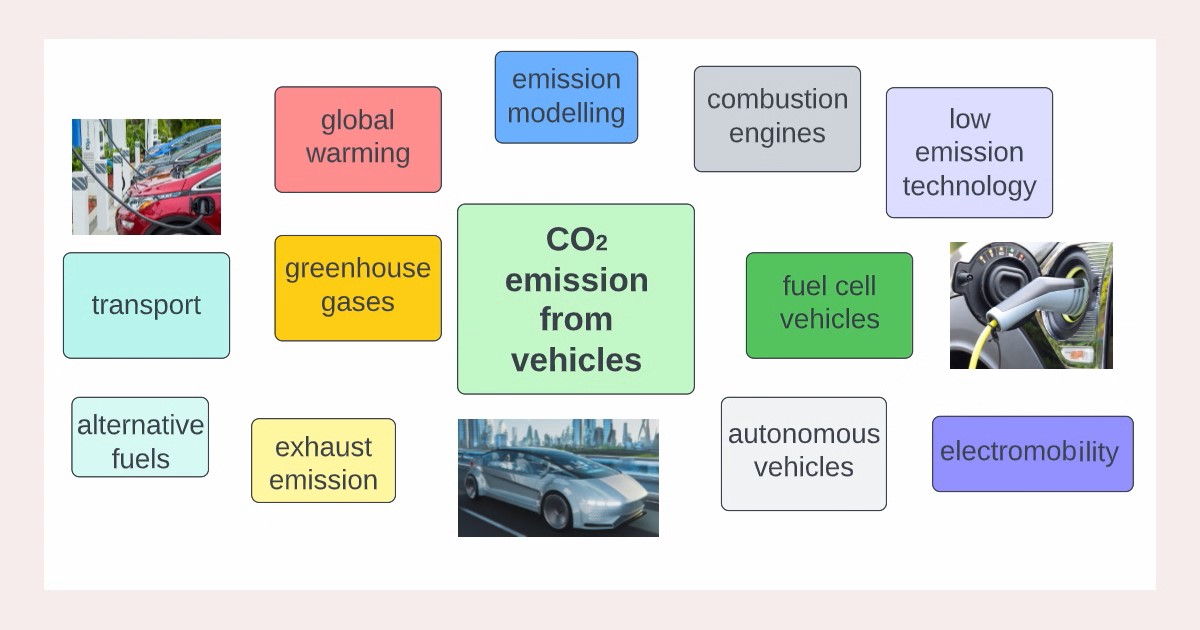CO2 Emissions from Vehicles (Volume III)
A special issue of Energies (ISSN 1996-1073). This special issue belongs to the section "B: Energy and Environment".
Deadline for manuscript submissions: 31 May 2026 | Viewed by 1426

Special Issue Editors
Interests: emission; exhaust gases
Special Issues, Collections and Topics in MDPI journals
Interests: vehicle emissions; engine emissions
Special Issues, Collections and Topics in MDPI journals
Interests: energy engineering; tribological; combustion engine
Special Issues, Collections and Topics in MDPI journals
Special Issue Information
Dear Colleagues,
The challenge of reducing greenhouse gas emissions is one of the most pressing issues humanity faces, and its resolution is critical. In particular, emissions from the transport sector represent a substantial portion of global anthropogenic greenhouse gas emissions, and the scientific community plays a pivotal role in finding effective, innovative solutions to overcome this problem. Among the key contributors to these emissions is CO2, which is largely generated by the combustion of fuel in vehicles.
This Special Issue seeks to inspire researchers, both local and global, to approach this challenge from a broad range of perspectives. We welcome contributions focused on innovative engine technologies, advanced after-treatment systems, and other forward-thinking concepts that have the potential for real-world application and that could have a significant environmental impact. We particularly encourage the submission of articles exploring cutting-edge topics, especially the large-scale electrification of vehicles and its role in the decarbonization of transport.
We also welcome submissions that analyse emissions, incorporating modern tools such as artificial intelligence and machine learning to model and better understand various emission dynamics. Both original research and comprehensive reviews (e.g., on legislative frameworks) that align with the goals of this Special Issue are welcome.
Dr. Maksymilian Mądziel
Dr. Artur Jaworski
Dr. Paweł Woś
Guest Editors
Manuscript Submission Information
Manuscripts should be submitted online at www.mdpi.com by registering and logging in to this website. Once you are registered, click here to go to the submission form. Manuscripts can be submitted until the deadline. All submissions that pass pre-check are peer-reviewed. Accepted papers will be published continuously in the journal (as soon as accepted) and will be listed together on the special issue website. Research articles, review articles as well as short communications are invited. For planned papers, a title and short abstract (about 250 words) can be sent to the Editorial Office for assessment.
Submitted manuscripts should not have been published previously, nor be under consideration for publication elsewhere (except conference proceedings papers). All manuscripts are thoroughly refereed through a single-blind peer-review process. A guide for authors and other relevant information for submission of manuscripts is available on the Instructions for Authors page. Energies is an international peer-reviewed open access semimonthly journal published by MDPI.
Please visit the Instructions for Authors page before submitting a manuscript. The Article Processing Charge (APC) for publication in this open access journal is 2600 CHF (Swiss Francs). Submitted papers should be well formatted and use good English. Authors may use MDPI's English editing service prior to publication or during author revisions.
Keywords
- transport
- autonomous vehicles
- CO2 emission
- emission modelling
- fuel consumption
- exhaust emission
- global warming
- greenhouse gases
- combustion engines
- electromobility
- hybrid and electric vehicles
- fuel cell vehicles
Benefits of Publishing in a Special Issue
- Ease of navigation: Grouping papers by topic helps scholars navigate broad scope journals more efficiently.
- Greater discoverability: Special Issues support the reach and impact of scientific research. Articles in Special Issues are more discoverable and cited more frequently.
- Expansion of research network: Special Issues facilitate connections among authors, fostering scientific collaborations.
- External promotion: Articles in Special Issues are often promoted through the journal's social media, increasing their visibility.
- Reprint: MDPI Books provides the opportunity to republish successful Special Issues in book format, both online and in print.
Further information on MDPI's Special Issue policies can be found here.
Related Special Issue
- CO2 Emissions from Vehicles (Volume II) in Energies (16 articles)







